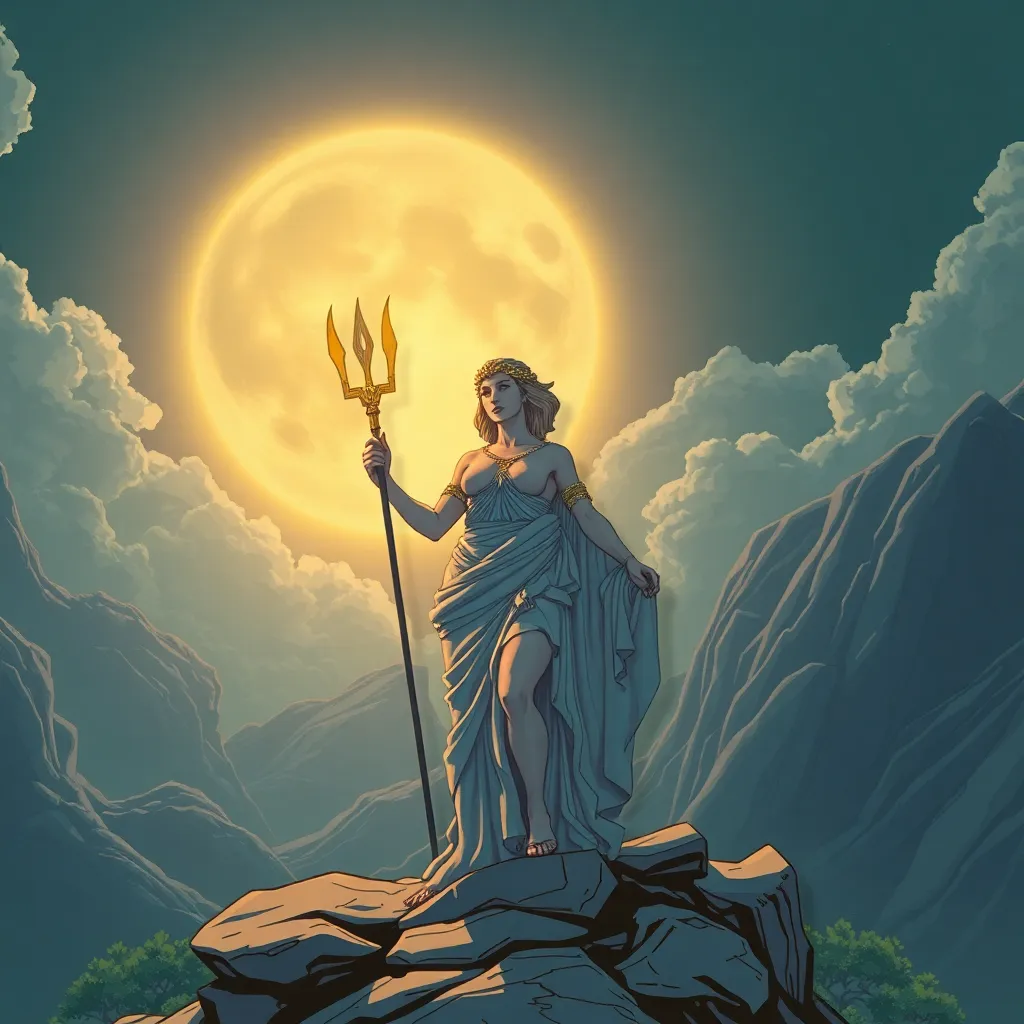Hera’s Legacy in Popular Culture: From Comics to Cinema
I. Introduction
Hera, the queen of the gods in Greek mythology, is a figure steeped in complexity and power. As the wife of Zeus and the goddess of marriage and family, she embodies both the nurturing and vengeful aspects of femininity. Her legacy is not only preserved in ancient tales but continues to resonate in modern popular culture. This article will explore the significance of Hera’s character and how her archetype has evolved across various media, from comic books to films, and even into video games.
II. Hera in Ancient Mythology
Hera’s origins in Greek mythology can be traced back to ancient texts, where she is often depicted as the daughter of the Titans Cronus and Rhea. Her significance is profound, as she is not only a goddess of marriage but also a protector of women and children, reflecting the societal values of ancient Greece.
Key attributes associated with Hera include:
- Goddess of marriage and family
- Protector of women during childbirth
- Symbol of jealousy and vengeance, particularly against Zeus’s lovers and their offspring
Some of the most famous stories involving Hera include her fierce rivalry with Heracles, the trials she imposed on Zeus’s illegitimate children, and her role in the Trojan War, where she supported the Greeks against the Trojans.
As one of the Olympian gods, Hera holds a crucial position in the pantheon, often depicted as a powerful and authoritative figure among the other deities.
III. Hera’s Representation in Comics
The portrayal of Hera in comic books has evolved significantly over time. Early representations often leaned towards the traditional mythological aspects, focusing on her role as the jealous wife of Zeus.
Notable adaptations in major comic series include:
- Wonder Woman: Hera appears as a mentor and ally to Wonder Woman, showcasing a more nuanced and supportive side to her character.
- Marvel Comics: Hera is featured in various storylines, sometimes as an antagonist, reflecting her mythological characteristics.
Across different comic eras, Hera’s character has evolved from a one-dimensional figure of jealousy to a more complex representation that explores themes of empowerment and resilience. This shift reflects broader societal changes in how female characters are written and perceived.
IV. Hera in Film and Television
Hera’s presence in film and television has further shaped her legacy, with several major adaptations bringing her character to life. In the 1981 classic Clash of the Titans, Hera is depicted as a powerful goddess guiding Perseus in his quest, while in the 2014 remake, she takes on a more antagonistic role.
Television representations have also made an impact, particularly in series like Hercules: The Legendary Journeys and its spin-off, Xena: Warrior Princess. Here, Hera is portrayed with a blend of authority and vulnerability, providing depth to her character.
Comparing portrayals across different media reveals:
- A tendency for film adaptations to emphasize her vengeful nature.
- A more sympathetic portrayal in television, often exploring her motivations and insecurities.
V. Hera’s Influence on Modern Feminism
Hera’s character resonates with modern feminist themes, representing the duality of female power: the nurturing protector and the fierce warrior. Her struggles against Zeus’s infidelities and the injustices faced by women in mythology have led to reinterpretations that emphasize her strength and resilience.
Contemporary narratives often reinterpret Hera as:
- A symbol of female empowerment, challenging patriarchal norms.
- A complex character whose motivations are explored in depth, rather than portrayed solely as a jealous wife.
This evolution positions Hera as a figure of inspiration for feminist discourse, illustrating the ongoing relevance of her character in today’s society.
VI. Reception and Critique of Hera in Popular Culture
The public perception of Hera’s character in modern adaptations is mixed. While many appreciate the complexities added to her character in comics and television, others critique the tendency to revert to stereotypes of jealousy and vengeance.
A critical analysis of her portrayal reveals:
- The implications of her character as a reflection of societal attitudes towards women.
- The necessity for cultural sensitivity in representing mythological figures, particularly when adapting ancient stories for contemporary audiences.
This discussion fosters a broader awareness of how female characters are constructed and the messages they convey in popular culture.
VII. Hera in Video Games and Multimedia
Hera’s appearances in video games have introduced her to a new generation of fans. Titles such as Hades and Smite feature Hera, offering players interactive experiences that engage with her mythology.
Exploring interactive narratives allows players to:
- Engage with Hera’s character in unique ways, often allowing for choices that reflect her complex nature.
- Experience her story through gameplay, enhancing the depth of her character beyond traditional storytelling.
The rise of Hera in online gaming communities showcases her enduring appeal and the potential for mythological figures to thrive in modern digital spaces.
VIII. Conclusion
Hera’s multifaceted legacy in popular culture is a testament to her enduring relevance as a mythological figure. From comics to cinema and video games, her character continues to evolve, reflecting contemporary values and societal changes.
Looking to the future, there are endless possibilities for Hera in storytelling, whether exploring her role as a powerful woman in mythology or reimagining her in new narratives. As we continue to engage with her character, it becomes clear that Hera remains a symbol of strength, resilience, and the complexities of female identity.
In conclusion, Hera’s legacy is not only a reflection of ancient mythology but also a dynamic part of modern culture, proving that her story is far from over.




